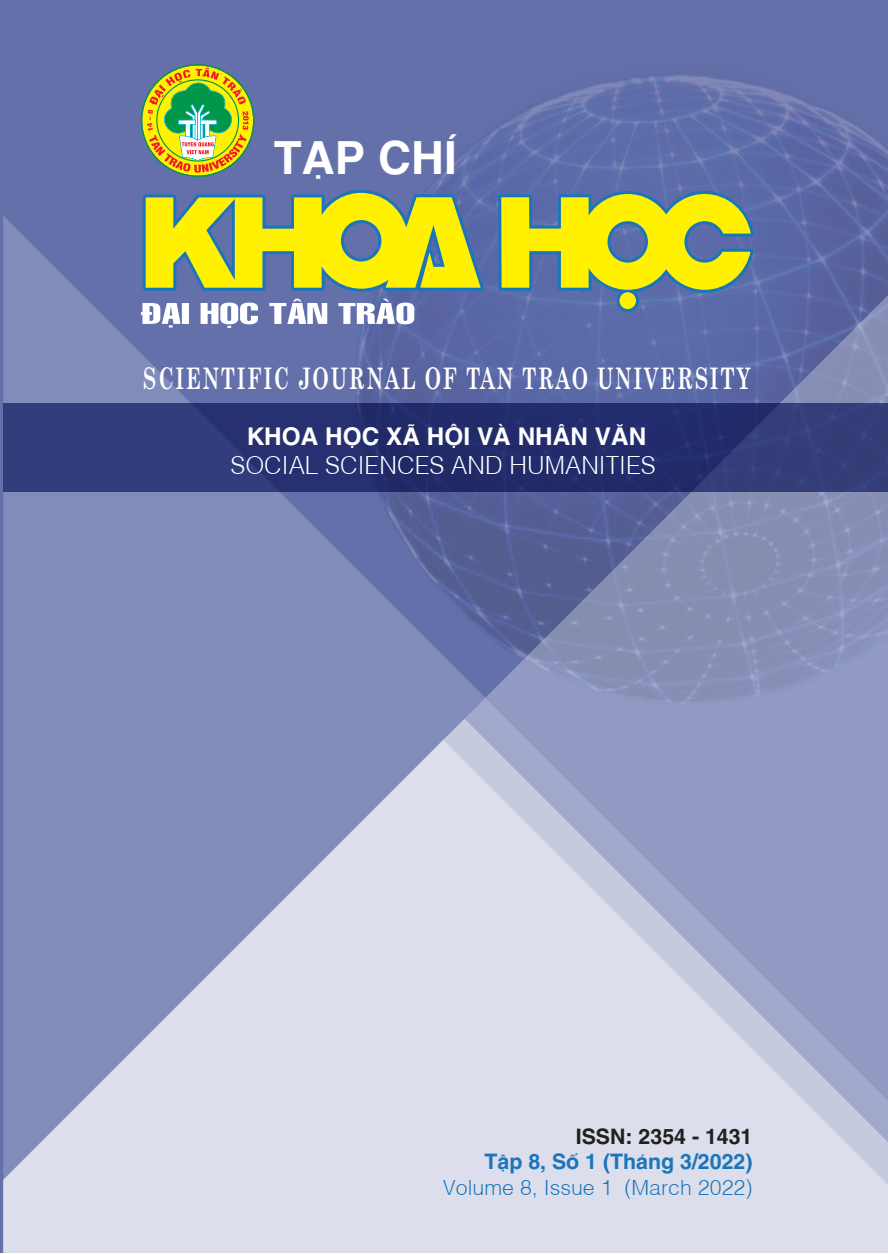NÂNG CAO NĂNG LỰC TƯ DUY CHO SINH VIÊN TRƯỜNG ĐẠI HỌC TÂN TRÀO TRONG HỌC TRỰC TUYẾN DƯỚI GÓC ĐỘ TRIẾT HỌC MÁC - LÊNIN
DOI:
https://doi.org/10.51453/2354-1431/2022/721Từ khóa:
Năng lá»±c tÆ° duy, há»c trá»±c tuyến, triết há»c, triết há»c Mác – LêninTóm tắt
Sự phản ánh lao động trong ý thức của con người, làm xuất hiện tư duy với tư cách là hệ tri thức hoạt động sản sinh ra tri thứ. Do đó, để phát triển năng lực tư duy, phải bồi dưỡng và phát triển tính biện chứng của tư duy (khả năng nhận ra và thống nhất các mặt đối lập, mối liên hệ và sự chuyển hóa giữa các khái niệm, phạm trù; năng lực trừu tượng hóa, khái quát hóa, suy luận, theo quy luật biện chứng của tồn tại). Nâng cao năng lực tư duy không phải là mục đích tự thân mà là để giải quyết thành công những vấn đề thực tiễn.
Tải xuống
Tài liệu tham khảo
[1] Documents of the Eighth Conference of the Central Committee of the Communist Party of Vietnam, XI ter
[2] Lomonosov National University – Faculty of Philosophy (2004), Philosophical Questions and Answers, Da Nang Publishing House
[3] Mark. C and Engels, Ph. (1993), full volume, volume 23, National Political Publishing House, Hanoi
[4] Lenin, V.I. (1980), Complete Volume, volume 18, Progressive Publishing House, Moscow.
[5] National University of Lomonosov - Faculty of Philosophy (2004), Philosophy of Question and Answer, Da Nang Publishing House.
[6] Examination room, Academic results for the 1st and 2nd semester of 2020-2021 of primary school students, course 20-24.
[7] Student management office, statistics on the residence of students of Tan Trao University, class 2020 - 2024. Tan Trao University
Tải xuống
Đã Xuất bản
Cách trích dẫn
Số
Chuyên mục
Giấy phép

Tác phẩm này được cấp phép theo Giấy phép Quốc tế Creative Commons Attribution-ShareAlike 4.0 .
Bài báo được xuất bản ở Tạp chí Khoa học Đại học Tân Trào được cấp phép theo giấy phép Ghi công - Chia sẻ tương tự 4.0 Quốc tế (CC BY-SA). Theo đó, các tác giả khác có thể sao chép, chuyển đổi hay phân phối lại các bài báo này với mục đích hợp pháp trên mọi phương tiện, với điều kiện họ trích dẫn tác giả, Tạp chí Khoa học Đại học Tân Trào và đường link đến bản quyền; nêu rõ các thay đổi đã thực hiện và các nghiên cứu đăng lại được tiến hành theo cùng một bản quyền.
Bản quyền bài báo thuộc về các tác giả, không hạn chế số lượng. Tạp chí Khoa học Tân Trào được cấp giấy phép không độc quyền để xuất bản bài báo với tư cách nhà xuất bản nguồn, kèm theo quyền thương mại để in các bài báo cung cấp cho các thư viện và cá nhân.
Mặc dù các điều khoản của giấy phép CC BY-SA không dành cho các tác giả (với tư cách là người giữ bản quyền của bài báo, họ không bị hạn chế về quyền hạn), khi gửi bài tới Tạp chí Khoa học Đại học Tân Trào, tác giả cần đáp ứng quyền của độc giả, và cần cấp quyền cho bên thứ 3 sử dụng bài báo của họ trong phạm vi của giấy phép.






